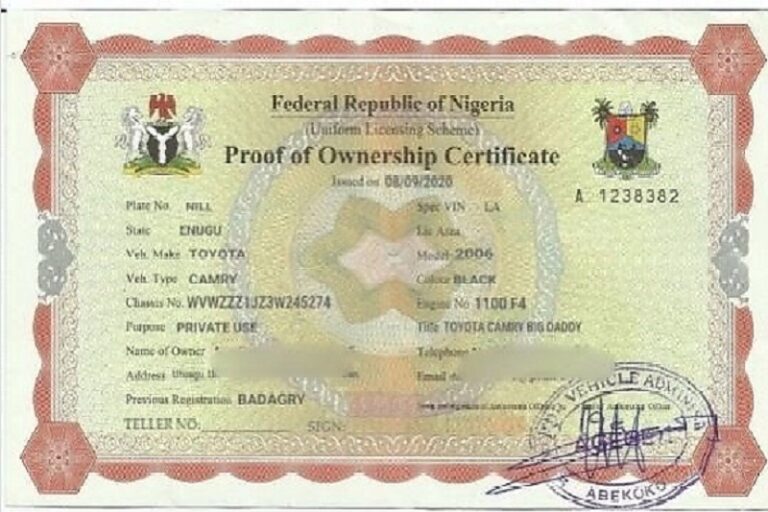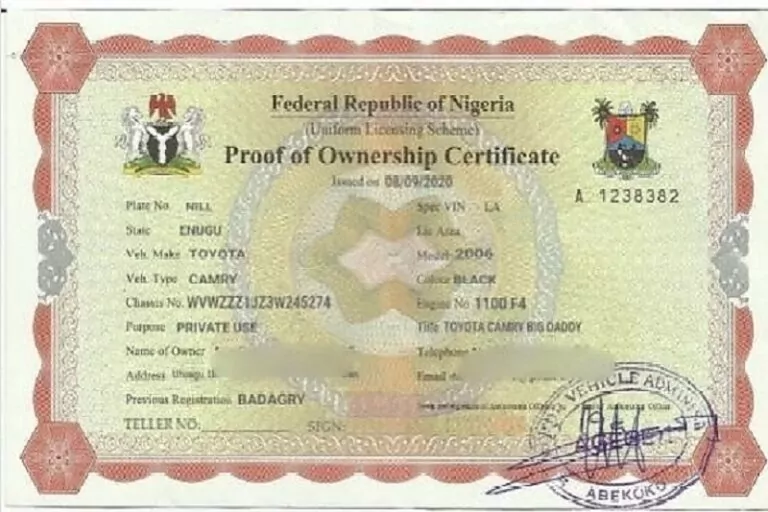

vehicle owners have to pay n1,000 every year for ownership certificate
The Federal Government of Nigeria has introduced a new policy that requires vehicle owners to pay an annual fee of N1,000 for a Proof of Ownership Certificate.
This means that vehicle owners now have an additional expense on top of their regular vehicle payments.
The government estimates that there are approximately 12 million vehicles in the country, and if every owner pays the required fee, it would generate an estimated N12 billion in revenue.
According to data from the National Bureau of Statistics, Nigeria had 11.76 million vehicles in Q2 2018, with around 400,000 vehicles being imported into the country each year.
In 2021, 192,287 vehicles were imported through a specific terminal, but this number decreased to 114,159 in 2022.
The implementation of the Proof of Ownership Certificate fee has sparked protests from Nigerians. Some experts, like Taiwo Oyedele from PricewaterhouseCoopers (PwC), argue that the new tax is retrogressive.
Oyedele believes that the tax lacks proper conception and design. He also questions the benefits of this mechanism, suggesting that it primarily favors non-state entities rather than the government.
He finds it unnecessary to provide annual proof of vehicle ownership when owners already possess a government-issued certificate validating their ownership.
Despite the protests, Abdulhafiz Toriola, the Permanent Secretary of the Lagos Ministry of Transportation, has confirmed that the collection of the Proof of Ownership Certificate fee will begin in Lagos in July 2023.
The introduction of the annual fee of N1,000 by the Federal Government of Nigeria has sparked controversies across the country.
The experts are saying that the vehicle ownership certification fees will generate significant revenue for the government, as there are more than 12 Million vehicles in the country.
But it is unnecessary and it will be a big burden to the citizens. There are so many oppositions and criticisms across the country but the government has confirmed that the new fees are set to start in Lagos in July 2023.
The U.S.-based driver training company Zutobi analyzed road safety worldwide and found South Africa stays last in driving danger since…
The Basketball Africa League (BAL) returns for its 2025 season with exciting changes and developments. Since 2019 the NBA-linked basketball…
The Somali president supports their military forces to eliminate the threats from Al-Shabaab, ISIS, and Al-Qaeda. The Somali National Army…
UAE President Sheikh Mohamed bin Zayed Al Nahyan held talks with President Faustin Archange Touadéra of the Central African Republic…
African football teams struggle intensely in the World Cup Qualification rounds to earn their place on the international football stage.…
The journey toward the 2026 FIFA World Cup is rapidly intensifying for all African teams, who now hold a historical…
This website uses cookies.